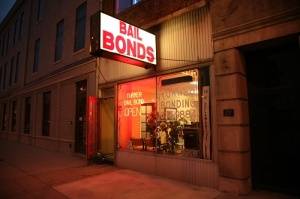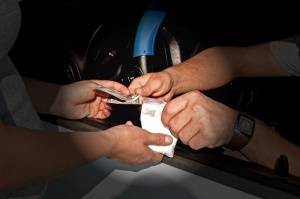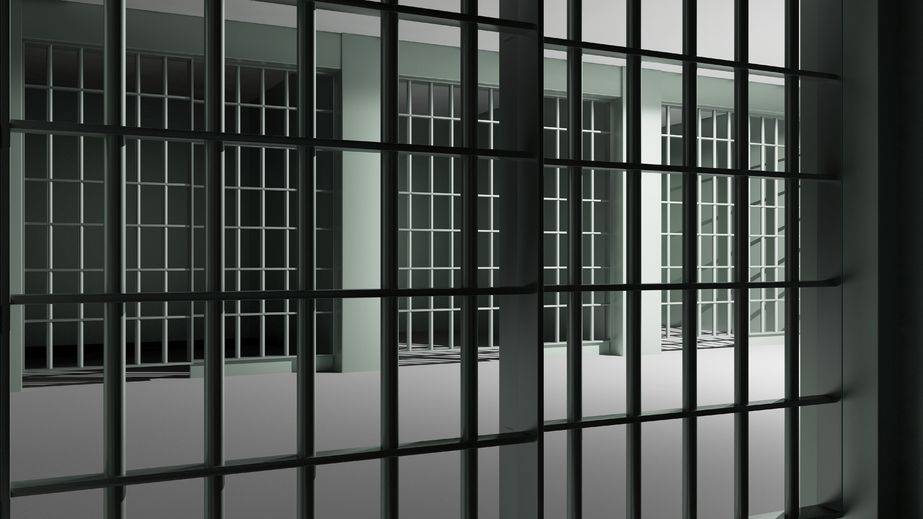What is a 1275 Hold? (California Penal Code Section 1275)
Your loved one calls you from jail and says he or she has been arrested. You try to post bail only to find out that you are not allowed to do so because there is a “1275 hold” on bail. What on earth is going on?
In order for you to understand why you are not being allowed to bail your loved one out of jail due to a “1275 hold,” it is important you understand how bail works in California.
How is the Bail Amount Decided?

Every county in California sets their own bail schedule, which lists the amount of bail required for specific crimes. After you or a loved one is booked in, the bail amount will be set according to the bail schedule in the county where the criminal charges are filed.
However, when the accused goes to court at their first court hearing (called the arraignment), the court can raise or lower the bail based upon any of the factors below:
- The seriousness of the crime;
- A criminal record or outstanding warrants;
- The likelihood that the defendant will appear in court;
- Whether the arresting officer has placed a 1275 bail hold.
It is always a good idea to hire an experienced criminal defense attorney prior to the arraignment. Your lawyer can prepare for the “bail hearing,” which takes place at the conclusion of the arraignment, to maximize the chances that the bail can be lowered or even that you could be released without bail (on your own recognizance).
3 Ways to Post Bail
1. Cash (California Penal Code Section 1269) – In order for you to be able to post bail with cash, you have to either have the proper amount of cash on hand or post a cashier’s check for that amount at the jail. Bail amounts usually range from $10,000 to $100,000, making this method very difficult to achieve in most cases.
If you attend all court appearances, your cash bail amount will be returned. However, it often takes up to 12 weeks to receive the cash bail back from the county after the conclusion of the case. If you have posted cash bail and you fail to appear, your cash bail will be forfeited to the state.
2. Bail Bond (California Penal Code Section 1276) – A bail bond is a contract between the accused and a bail bond agent. Under this contract, you promise to appear in court when ordered and the agent promises to post bail for you. You have to pay the agent a non-refundable premium, which is typically 10% of the bail amount. However, if you retain an attorney before you post bail, the 10% premium will be reduced to 8%.
In order for the bail bond agency to post bail on your behalf, an agent will typically require some sort of collateral. This can be a house, car, or anything of value you own. If you fail to appear in court, this collateral will be used to cover the forfeiture of the bail amount.
3. Property Bond (California Penal Code Section 1276.5) – A property bond is when you post your equity interest in real property to ensure your appearance in court. The value of the equity must be at least twice the bail amount. For instance, if bail has been set at $100,000, the court must be satisfied that the equity value of the property that is to be posted as bail is at least $200,000. In order to obtain a property bond, the property must have been recently appraised, any liens disclosed, and the property equity be professionally estimated.
The court will accept the property bond and you will be released from custody if there is enough equity in the property. If you fail to appear in court, the county will place a lien on the property and foreclose on it to recover the amount of bail.
California Penal Code Section 1275.1

PC 1275.1 states that if there is probable cause to suspect that the money or property used to post bail may come from criminal activity, bail will not be accepted. This is commonly known as a 1275 hold. The hold can be placed by the arresting officer, a prosecutor, or a judge.
The arresting officer is usually the one who places a 1275 hold. It is standard practice to place a 1275 hold when arresting suspects who have been accused of certain crimes involving illicitly obtained money, such as
- Drugs;
- Embezzlement;
- Theft;
- Extortion.
The person who places the hold must have probable cause to suspect that any money used for bail might come from criminal activity. After the hold has been placed, the burden of proof shifts to the accused, or whoever wishes to post bail. The person who intends to post bail must prove that the money/property used to post bail comes from a legitimately obtained source.
The 1275 Hearing (PC 1275)
The 1275 hearing may occur at the first court appearance or at a special hearing to determine the 1275 issue. You have the right to a closed 1275 hearing to avoid disclosing information about your finances in open court.
You will be asked to bring financial records to the hearing that can show how you obtained the money you are using to post bail or pay a bondsman. The records you’ll be required to show may include:
- Credit card statements;
- Rent/Mortgage payment documentation;
- Bank Statements;
- Car Payments;
- Tax Returns;
- Proof of income.
People who may appear with you in court include your attorney, bail bondsman, and anybody who can verify the source of income you are going to use to post bail.
If the judge ascertains that the money or security used to post bail comes from a legitimate source, the hold will be removed and your bail will be accepted.
It is critical to have an attorney represent you at this hearing who has experience in the court that has jurisdiction over your case, knows a bail bondsman, knows the prosecutors and judges, and is familiar with how that particular court works.
Call Wallin & Klarich for Help
If you or a loved one is arrested for a crime, the first thing you need to do is speak with an experienced criminal defense attorney. At Wallin & Klarich, our attorneys have over 40 years of experience successfully representing clients in criminal cases. We understand how stressful it is when you or a loved one is in jail and facing criminal charges. We will be with you every step of the way, helping you to prepare for a successful outcome at your 1275 hearing.
Our offices are located in Los Angeles, Sherman Oaks, Torrance, Orange County, San Diego, Riverside, San Bernardino, Ventura, West Covina and Victorville so that we can help you no matter where you work or live.
Call us today at (877) 4-NO-JAIL or (877) 466-5425 for a free phone consultation. We will get through this together.




